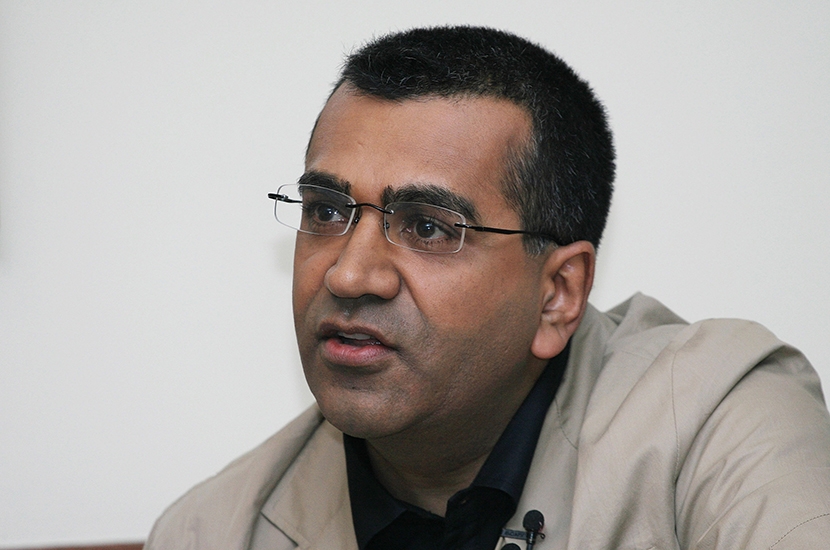If it is true, as Lords Hall and Birt told a Commons committee this week, that Martin Bashir succeeded in duping all the five top BBC executives involved about the forged invoices by which he convinced Diana, Princess of Wales of the establishment’s conspiracy against her, then those executives must be very, very unworldly people. I am reluctant to believe that of them. There must be a different explanation, one with which, as an ex-editor, I have some sneaking sympathy. The interview got the BBC a wonderful story, so when trouble started shortly afterwards, that trouble had to be smoothed away. The problem was not only the BBC’s reputation, but also the careers of the five executives. How could Tony Hall ever have become director-general if the true story had come out at the time? How could John Birt have stayed director-general? It was important to believe a liar then, and becomes important to identify him as a liar now, for the same reason in both cases. Brilliant of Lord Hall to remind us of his humanity by repeating three or four times that Bashir had broken down in tears at their interview and saying that he, Tony, had felt he must give him a second chance.
What also makes me laugh is the BBC’s eventual solution to the fear that the Bashir problem might erupt again. Make him the religion editor! Like a bishop whose see is in partibus infidelium, Bashir was not seriously expected to visit his flock. He was to be paid and he was to stay quiet. If Lord Spencer had not piped up, Bishop Martin would presumably be wearing his episcopal purple still. I laughed again when, on the day of the committee hearing, BBC News led on the ‘institutional corruption’ of the police.
Lord Birt said something interesting about Lord Hussey, the BBC chairman at the time. He described him as becoming ‘more and more difficult’ because he had ‘very, very strong views about Diana’ and his wife was lady-in-waiting to the Queen. He would have stopped the interview, Birt believed, and therefore he had to be kept in the dark: ‘You wouldn’t stare a gift horse in the mouth.’ One can now see that, if the BBC had behaved in a manner consonant with its principles and privileges, it would not have been able to run the interview at all. Only by multiple breaches of trust could it do so. One can therefore also see why Prince William spoke with such cold anger when the truth finally emerged. It was not the BBC interview that drove his parents apart, but it was the interview, the lies used to sustain it and the concealment of those lies which ensured that his mother fell among thieves.
There is some light moaning about our trade deal with Australia. People say it is unfair since its farms are huge and ours are small. When you consider the difference in rainfall between the two countries, this becomes a non-point. Our National Farmers’ Union was fixated on staying in the EU. It cannot imagine a country like Australia. There the farmers lead the fight for free trade. They believe they can compete on input, and they achieve wider markets, selling beef into the United States although it is the biggest beef producer in the world. What sort of a country would we be if we did not get a trade deal with Australia? There are probably no two countries in the world with greater natural and historical affinity. It was our period in the EU which artificially cut us off. We are not about to be flooded with the cheap stuff: that goes to Asia. It is the high-end meat which will come our way. A friend tells me that you currently pay £380 for a kilo of Australian Wagyu beef in Harrods. Perhaps that will now come down a bit.
In her letter in last week’s issue, Hilary McGrady, the director-general of the National Trust, says: ‘There is no truth in the allegation that we are pursuing a political agenda.’ We must take her word for it, but it must surely follow that the Trust dissociate itself from the inescapably political positions of those in charge of its interim report into its properties’ links with slavery and ‘colonialism’. The report’s main editors are the Trust’s chief curator, Sally-Anne Huxtable, and the head of the Colonial Countryside project, Professor Corinne Fowler. Both are on public record making political comments about their work. Dr Huxtable tweeted after the report’s publication, ‘For me, now is a transformational time for the whole of society, and that includes the Trust.’ Prof Fowler, in her related book, Green Unpleasant Land, says: ‘I make no claim to neutrality… I have indeed crossed a line… This book lays aside any pretence that I am not involved.’ In their eyes, the report is a political project. At the time of writing, the Trust has not rebuked them and there has been no revision of the contentious work.
A sharp illustration of Prof Fowler’s politicised view of history comes in her book. She describes the Haitian slave revolt by Toussaint L’Ouverture in 1791 as ‘the first significant countermovement for colonial freedom in the modern Atlantic and global world’. Has she not heard of the American War of Independence which began in 1775 and created what eventually became the most powerful nation in history?
In manifold current rows about wokery, reference is often made to the Cultural Revolution in China. In June 1966, the People’s Daily denounced ‘The Four Olds’: Old Ideas, Old Culture, Old Habits and Old Customs. The Red Guards attacked them all, knocking down statues, digging up graves, desecrating temples and renaming streets. Hundreds of thousands, probably millions, died. I like the sound of The Four Olds. Perhaps they should lend their name to a mass movement — restoring statues, revering ancestors, respecting history, ably led by the grey-haired and doubly-vaccinated.







Comments